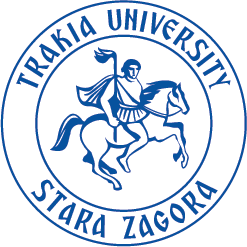EDUCATIONAL CLUSTER AS A FORM FOR IMPLEMENTING INNOVATIVE POLICIES AND PRACTICES IN EDUCATION AND TEACHER TRAINING
DOI: 10.15547/PF.2017.026
Education in the contemporary world is facing many challenges brought about by globalization and rapid technological development. Universities and schools are preparing students, university staff and teachers to implement modern educational processes. Educational institutions are expected to apply innovative technologies in education, and yet to meet the needs, and understand the mindset of today's students. These processes are enhanced by the rapid development of information and communication technologies.Naturally, solutions to all these problems cannot be found easily.
What is needed is an integration of institutions interested in educational development. Clusters, and in particular educational clusters, facilitate this phenomenon.
The article discusses the specifics of educational cluster formation as a form of introducing innovative policies and practices in education and teacher training. Presented are the types of educational clusters and their role in the development of innovation management in education.
Proposed is an exemplary educational cluster structure of continuing education and teacher training, based on the experience of the Department of Information and In-service Teacher Training at Trakia University, Stara Zagora, Bulgaria. Summarized are methodological recommendations for the implementation of cluster policy in the field of education in Bulgaria.
What is needed is an integration of institutions interested in educational development. Clusters, and in particular educational clusters, facilitate this phenomenon.
The article discusses the specifics of educational cluster formation as a form of introducing innovative policies and practices in education and teacher training. Presented are the types of educational clusters and their role in the development of innovation management in education.
Proposed is an exemplary educational cluster structure of continuing education and teacher training, based on the experience of the Department of Information and In-service Teacher Training at Trakia University, Stara Zagora, Bulgaria. Summarized are methodological recommendations for the implementation of cluster policy in the field of education in Bulgaria.

